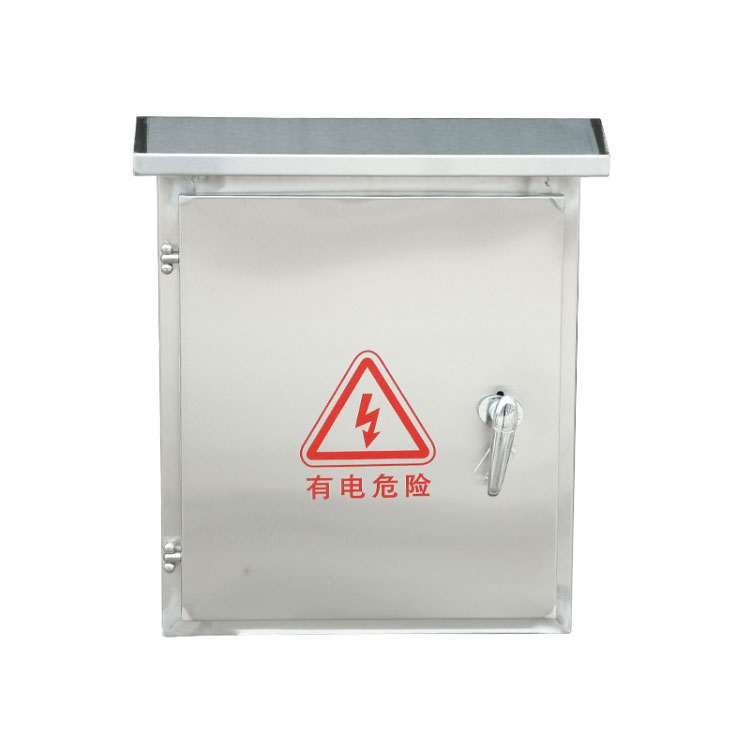Metal Electrical Boxes: Essential Components for Safe and Reliable Electrical Installations
2025-03-18
When it comes to electrical installations, safety and reliability are paramount. One of the most crucial components ensuring these factors is the metal electrical box. Often overlooked, these sturdy enclosures provide a safe housing for electrical wiring and outlets, helping to protect both electrical systems and individuals from potential hazards.
In this blog, we will dive into the importance of metal electrical boxes, their types, benefits, and why they are considered a fundamental part of any electrical system.
What is a Metal Electrical Box?
A metal electrical box is a durable enclosure made from metal, such as steel or aluminum, used to house electrical components such as switches, outlets, and circuit breakers. These boxes protect electrical wires and devices from physical damage, electrical faults, and external environmental factors. They are commonly installed in walls, ceilings, or floors, providing a safe and secure housing for electrical connections.
There are two primary types of metal electrical boxes:
- Steel Boxes: Often used for general electrical installations, steel is durable and affordable.
- Aluminum Boxes: Typically used for outdoor or high-moisture environments, aluminum offers resistance to corrosion.
Benefits of Metal Electrical Boxes
1. Enhanced Safety
The primary function of metal electrical boxes is to provide safety. These enclosures act as a protective barrier for electrical connections, preventing accidental contact with live wires. Metal boxes are also fire-resistant, reducing the risk of fires caused by electrical malfunctions. In case of a fault, the metal box helps contain any sparks or heat, preventing them from spreading to surrounding materials.
2. Durability and Strength
Metal electrical boxes are incredibly strong and durable, offering a level of protection that plastic boxes cannot match. Whether exposed to physical impact, vibrations, or extreme temperatures, metal boxes maintain their integrity, ensuring long-term protection for electrical components. Steel and aluminum are both resistant to wear and tear, making them ideal for demanding environments.
3. Protection Against EMI/RFI
Electromagnetic interference (EMI) and radio-frequency interference (RFI) are concerns in environments with sensitive electronics. Metal electrical boxes are effective in shielding electrical systems from these interferences, preventing performance degradation in sensitive devices and systems. The metal casing blocks unwanted signals and minimizes the risk of malfunctions.
4. Versatility and Flexibility
Metal electrical boxes come in a wide variety of shapes and sizes, making them suitable for different types of electrical installations. Whether it's a single outlet box, a large panel for circuit breakers, or a weatherproof box for outdoor use, there is a metal electrical box for virtually every need. Additionally, they are available in both surface-mounted and flush-mounted designs, offering flexibility for installation.
5. Corrosion Resistance
Metal boxes, particularly those made from aluminum, are designed to withstand corrosion, making them ideal for use in harsh environments, such as outdoor settings, coastal areas, or areas with high humidity. Steel boxes can be treated with coatings like galvanization or powder coating to enhance corrosion resistance and prolong their lifespan.
Applications of Metal Electrical Boxes
Metal electrical boxes are used in a wide range of applications, including:
1. Residential Wiring
In homes, metal electrical boxes are used to house outlets, switches, and light fixtures, ensuring that electrical connections are protected from physical damage and accidental contact.
2. Commercial Installations
In commercial buildings, such as offices, retail spaces, and warehouses, metal electrical boxes are used to protect electrical wiring, lighting systems, and control panels from external damage.
3. Industrial Settings
In industrial environments, where machinery and equipment are often subjected to high levels of vibration and harsh conditions, metal electrical boxes provide durable, secure housing for electrical connections, helping to maintain system reliability and safety.
4. Outdoor and Wet Locations
For outdoor installations or areas exposed to moisture, such as gardens, construction sites, or docks, weatherproof metal electrical boxes are commonly used to prevent moisture from damaging the electrical components.
5. Hazardous Locations
In hazardous environments, such as chemical plants or oil refineries, specialized explosion-proof metal boxes are required to ensure that electrical systems are safely contained and can function without triggering a fire or explosion.
Choosing the Right Metal Electrical Box
When selecting a metal electrical box, there are several factors to consider:
1. Size and Capacity
The size of the box depends on the number of electrical components it needs to accommodate. Make sure to choose a box that provides enough space for the wires, connectors, and switches without overcrowding. Overcrowding can lead to overheating and potential safety hazards.
2. Material
Steel boxes are perfect for general indoor applications, while aluminum boxes are better suited for outdoor or moisture-prone environments. Ensure the material matches the installation conditions for optimal performance.
3. Installation Type
Consider whether the box will be installed flush with the wall or mounted on the surface. Some boxes are designed for surface mounting and offer additional features like knockouts for easy wiring installation.
4. Weather Resistance
If you're installing the electrical box in an outdoor or wet location, choose a weatherproof metal electrical box. These boxes often feature gaskets and seals to keep out moisture and debris.
5. Compliance with Standards
Make sure the metal electrical box meets the required standards for safety and compliance, such as those set by the National Electrical Code (NEC) or UL listing. This ensures the box has passed rigorous testing for quality and safety.
Conclusion
Metal electrical boxes are an essential component of any electrical system, providing safety, reliability, and durability for both residential and commercial installations. Their ability to protect electrical components from physical damage, electrical faults, and external environmental factors makes them indispensable for safe and efficient electrical operations.
When selecting the right box for your needs, consider factors such as material, size, and application to ensure optimal performance. Whether for a simple residential project or a complex industrial installation, metal electrical boxes are a smart investment in the long-term safety and reliability of your electrical systems.



